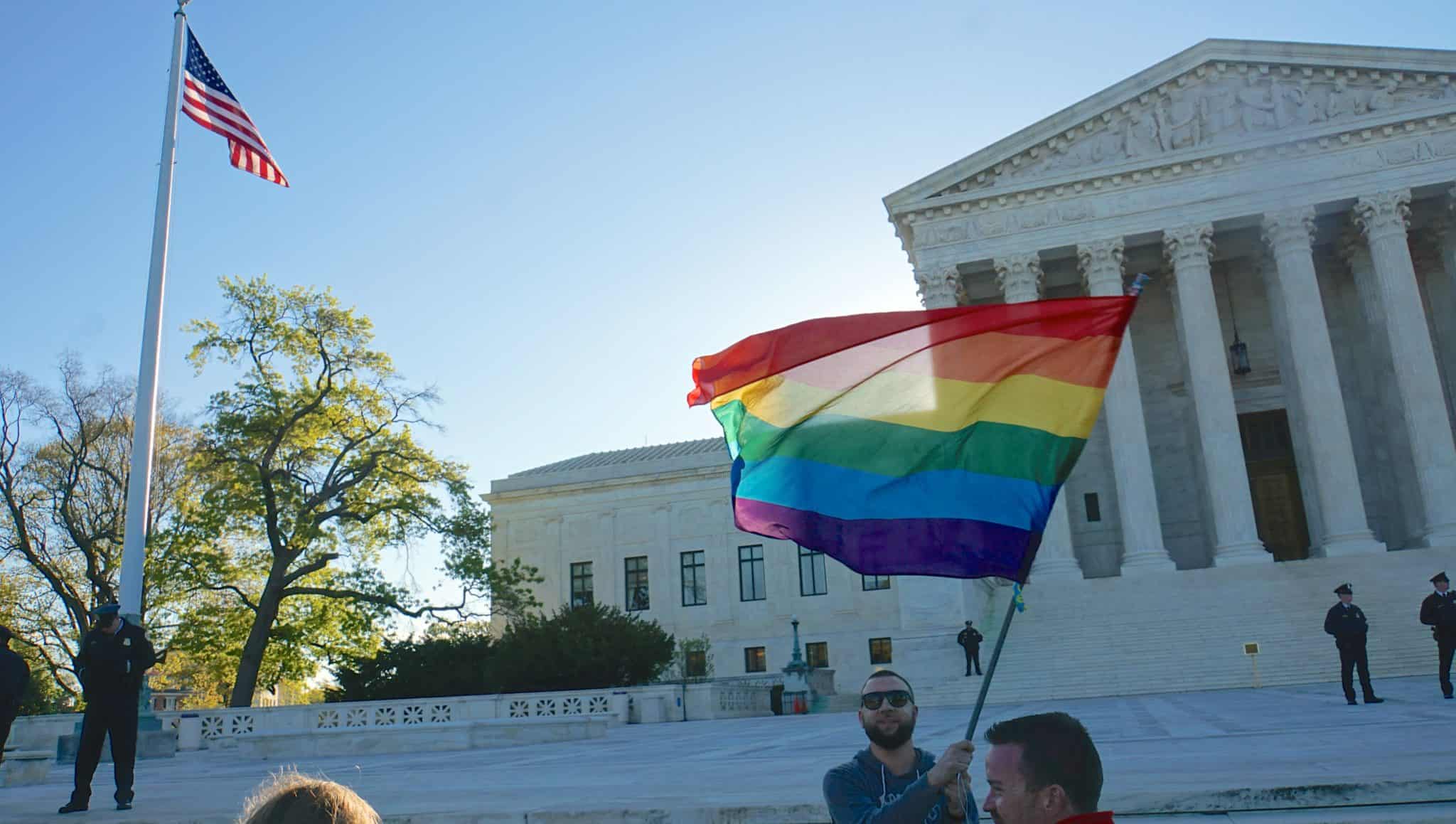
Leigh Thomas is a student at Harvard Law School.
“The Supreme Court’s decision on Monday outlawing anti-LGBTQ employment discrimination is a triumph for both the country and the [C]ourt,” wrote Slate’s Mark Joseph Stern. “It is a victory for the country because, in one fell swoop, [t]he [C]ourt granted vital protections to LGBTQ people in every state . . . . It is a victory for the [C]ourt because the decision is an encouraging sign that the justices can still practice neutral and responsible jurisprudence without partisan influence.”
It was also, by many accounts, a victory for the textualists. At SCOTUSblog, Jonathan Skrmetti noted that “[a]lthough the 6-3 decision prompted vigorous dissents, all nine justices adopt a purely textualist approach and disagree only about what flavor of textualism the Supreme Court should employ.” Yale Law professor Bill Eskridge called the opinions “a landmark methodological debate among three different textualist approaches,” with Gorsuch asking what the statute says, Alito asking how it would have been read in 1964, and Kavanaugh asking how it would be read in light of the whole U.S. Code. At Reason, Damon Root argued that Gorsuch hewed closest to the textualism of Scalia, comparing the decision in Bostock to Scalia’s opinion in Oncale. Alito himself claimed the mantle of Scalia-style textualism in his dissent, but Slate’s Stern accused him instead of “anti-textualism,” “elevat[ing] the alleged mental processes of long-dead lawmakers over the meaning of ordinary words.” Reflecting on Alito’s inquiry into what Americans thought the statute’s terms meant in 1964, The New York Times Editorial Board said it would be “hard to imagine these justices applying the same logic to the meaning of the Second Amendment.” The triumph of textualism caused some concern. At Above the Law, Joe Patrice speculated that Bostock would “be the vehicle for the next assault on basic tenets of statutory interpretation and Chevron deference,” finding parallels in how Roberts’s surprise opinion saving Obamacare in NFIB v. Sebelius fashioned new limits on the Commerce Clause into a liberal victory.
Still, LGBTQ and civil rights advocates widely celebrated the outcome. “[T]his is a full win,” tweeted ACLU attorney Chase Strangio. “[A] home run,” echoed Michigan Law professor Sam Bagenstos. Pointing to the opinion’s “broad-understanding of but-for cause” and the “strong reaffirmation of Manhart, sex-plus, [and] stereotyping doctrines,” Bagenstos said it was the “best Title VII decision we’ve seen in years.” At them, Condé Nast’s LGBTQ magazine, Gabriel Arana called the decision “bigger than marriage,” benefiting all queer Americans and not just the subset who wish to wed same-sex partners. The decision, some noted, came just “a day after an estimated 15,000 people marched in New York to say black trans lives matter.” Business and labor groups alike applauded the result.
Many commentators envisioned the obvious extensions of the sex discrimination argument to other areas of law. Speaking to Mother Jones, Lambda Legal’s Sharon McGowan explained that “[t]here are lots of places where this should just be plug and play,” such as the Affordable Care Act, the Fair Housing Act, and Title IX. In another piece, Slate’s Stern remarked on the “awful timing” of Trump’s Department of Health and Human Services, which issued its rule allowing medical providers to deny treatment to transgender patients just three days before Bostock, under which the rule’s logic almost certainly fails. At SCOTUSblog, Skrmetti anticipated that “this case will be heavily cited in forthcoming constitutional litigation,” despite the opinion’s emphasis on statutory interpretation. Skrmetti and PrawfsBlawg’s Gerard Magliocca also noted the stakes for the Equal Rights Amendment, which, if ratified, could now be read to protect LGBTQ rights.
While celebrating yesterday’s victory, many commentators recognized the work remaining and the threats still on the horizon. Senator Jeff Merkley, among others, urged passage of the Equality Act to codify Bostock’s protections for areas of law beyond employment. The Intercept’s Natasha Lennard said the decision was unable to erase the “anti-trans discrimination and violence firmly embedded in American life,” while NYU Law professor Shirley Lin noted that the Court’s failure to define “sex” left protections for workers with non-binary gender presentations unclear. Drawing connections to employment law’s other doctrinal hurdles, New York Magazine’s Sarah Jones stressed that full protections for LGBTQ workers will be unachievable until we end at-will employment. The National Employment Law Project cited the enforcement barriers posed by forced arbitration.
Looming large are religious liberty claims, which Gorsuch explicitly left open for “future cases.” At the Constitutional Law Prof Blog, CUNY Law professor Ruthann Robson observed that “all of the opinions raise the First Amendment free exercise of religion specter.” With respect to the Religious Freedom Restoration Act, Miami Law professor Caroline Mala Corbin said that Hobby Lobby already gave employers a “pretty good start” at a statutory exemption. And ACLU attorney James Esseks warned that the Catholic Social Services case the Court will hear next term could create a “a constitutional right to discriminate.”
Even with the prospect of future exemptions, social conservatives were apoplectic. “The Roe v. Wade of religious liberty is here,” wrote right-wing lawyer Josh Hammer, “and it was delivered by golden boy Neil Gorsuch.” Reflecting on the decision, Alexandra Desanctis at National Review argued that “religious Americans have done ourselves a disservice by fighting cultural and public-policy battles about marriage, sex, and gender in terms of religious freedom rather than in terms of the substance of each issue and the reasoning behind our views.” Some contemplated the consequences for conservative politics. Damon Linker at The Week said that Gorsuch “fire[d] a torpedo at Trump’s re-election.” Conservative columnist Varad Mehta predicted the end of the Federalist Society judicial project and the Trump presidency. “The whole point of [both],” he explains, “was to deliver Supreme Court victories to social conservatives. If they can’t deliver anything that basic, there’s no point for either.” That may be why Trump, claiming to have read the decision, said little. “We live with the decision of the Supreme Court,” he stated. Politico reported that “[t]he Republican Party seemed generally supportive of both the substance and the process by which the Supreme Court extended [the] Civil Rights Act.” But others, such as Daily Caller columnist Saurabh Sharma, urged open defiance.
Many commentators highlighted the opinion’s alignment with a cultural shift in favor of LGBTQ rights. Adam Nagourney and Jeremy W. Peters at The New York Times said it was “the strongest evidence yet of how fundamentally, rapidly and, to some degree, unpredictably American views about gay and transgender people have changed across the ideological spectrum in less than 20 years.” Michigan’s Bagenstos encouraged observers to “remember it’s the victory of a social movement,” “even if written in formalist legal terms.” As New York Magazine’s Irin Carmon remarked, Roberts and Gorsuch embraced textualism, but still “sign[ed] their names to an opinion that deferred to the plaintiff’s preferred gender pronouns.” John Bursch, the attorney for Harris Funeral Homes, seemed to agree, accusing the Court of “follow[ing] the culture, not the law.” LGBTQ advocates did not see a problem. “One big lesson of this opinion,” said gay marriage activist Evan Wolfson, “is don’t give up. You have to believe you can change things.”










Daily News & Commentary
Start your day with our roundup of the latest labor developments. See all
February 18
A ruling against forced labor in CO prisons; business coalition lacks standing to challenge captive audience ban; labor unions to participate in rent strike in MN
February 17
San Francisco teachers’ strike ends; EEOC releases new guidance on telework; NFL must litigate discrimination and retaliation claims.
February 16
BLS releases jobs data; ILO hosts conference on child labor.
February 15
The Office of Personnel Management directs federal agencies to terminate their collective bargaining agreements, and Indian farmworkers engage in a one-day strike to protest a trade deal with the United States.
February 13
Sex workers in Nevada fight to become the nation’s first to unionize; industry groups push NLRB to establish a more business-friendly test for independent contractor status; and UFCW launches an anti-AI price setting in grocery store campaign.
February 12
Teamsters sue UPS over buyout program; flight attendants and pilots call for leadership change at American Airlines; and Argentina considers major labor reforms despite forceful opposition.